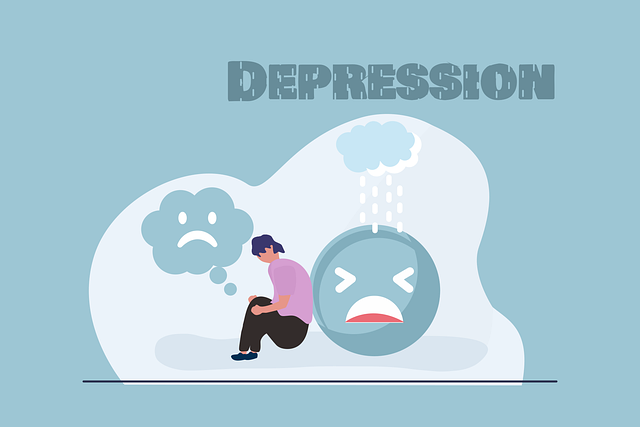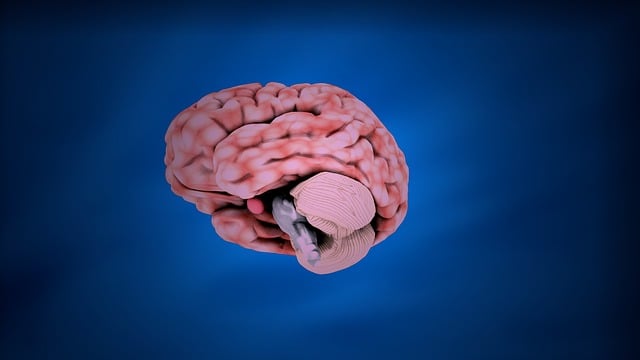Resilience, cultivated through specific exercises, is vital for overcoming adversity and maintaining mental well-being, especially for those with Englewood Psychosis. Englewood Psychosis Therapy introduces a unique framework, RFM (Strengths, Resources, Coping), that combines identifying personal strengths, leveraging community resources, and adopting Mind Over Matter principles to enhance mood management and overall adaptability. Practical tools like self-esteem improvement, open communication, mindfulness meditation, stress management, and problem-solving training empower individuals to thrive through challenges, fostering a supportive network for effective therapy and fulfilling lives despite mental health hurdles.
“Resilience, a cornerstone of mental well-being, plays a pivotal role in navigating life’s challenges. In this article, we explore how Resilient Factor Model (RFM) exercises offer a comprehensive framework for building resilience and combating conditions like Englewood Psychosis. By understanding the significance of resilience, you’ll discover the power of RFM in fostering adaptability and coping mechanisms. We’ll provide practical exercises to enhance your mental fortitude, offering valuable insights into effective Englewood Psychosis therapy.”
- Understanding Resilience and its Significance in Mental Health
- The Role of RFM in Building Resilience: A Comprehensive Approach
- Practical Exercises for Enhancing Resilience and Overcoming Englewood Psychosis
Understanding Resilience and its Significance in Mental Health

Resilience is a critical component of mental health that enables individuals to cope with adversity, bounce back from setbacks, and maintain a sense of well-being. It’s a skill that can be cultivated and strengthened, much like muscle memory, through various exercises designed to promote flexibility in thinking and emotional fortitude. Understanding resilience isn’t merely about overcoming difficult circumstances; it involves developing a mindset that empowers individuals to view challenges as opportunities for growth, fostering self-esteem improvement and mental health awareness along the way. Engaging in resilience-building exercises, such as those offered by Englewood Psychosis Therapy, can help people build confidence boosting tools to navigate life’s complexities with greater ease.
The Role of RFM in Building Resilience: A Comprehensive Approach

Resilience is a key component in navigating life’s challenges and stresses. At Englewood Psychosis Therapy, we recognize that building resilience isn’t just about enduring hardship; it’s about thriving despite it. RFM (Strengths, Resources, and Coping), a framework we utilize, offers a comprehensive approach to fostering mental fortitude.
This model encourages individuals to identify their unique strengths, access available resources within their communities or support systems, and develop effective coping skills rooted in the Mind Over Matter principles. By integrating these strategies, RFM equips people with the tools necessary for mood management—a crucial aspect of enhancing overall well-being. Through engaging in such exercises, one gains a sense of control, enabling them to approach life’s curveballs with increased confidence and adaptability.
Practical Exercises for Enhancing Resilience and Overcoming Englewood Psychosis

Resilience is a vital tool for navigating life’s challenges, and practical exercises can significantly enhance an individual’s ability to bounce back from adversity. For those struggling with Englewood Psychosis, these exercises become essential in therapy. One effective approach is incorporating self-esteem improvement techniques, such as positive affirmation and goal setting, to foster a sense of personal worth and confidence. This boosts resilience by empowering individuals to view challenges as opportunities for growth rather than insurmountable barriers.
Additionally, communication strategies play a crucial role in building resilience. Encouraging open dialogue helps individuals express their feelings and experiences, fostering a support network that is essential for coping. Coping skills development through exercises like mindfulness meditation, stress management techniques, and problem-solving training equips people with the tools to confront and overcome difficulties. These practices not only enhance overall well-being but also provide effective remedies for Englewood Psychosis Therapy, enabling individuals to lead fulfilling lives despite mental health challenges.
Resilience is a powerful tool in navigating mental health challenges, especially as evidenced by the effectiveness of RFM (Recovery-Focused Practice) exercises. By adopting these comprehensive strategies, individuals can build mental fortitude to overcome Englewood Psychosis Therapy obstacles and lead more fulfilling lives. Practical resilience-building techniques, when combined with professional support, offer hope and a path to recovery. This holistic approach ensures individuals are equipped to face adversity head-on, fostering a sense of empowerment and well-being.














